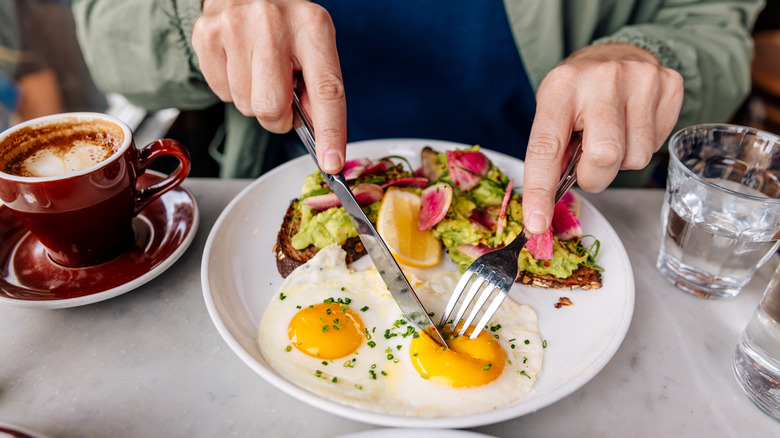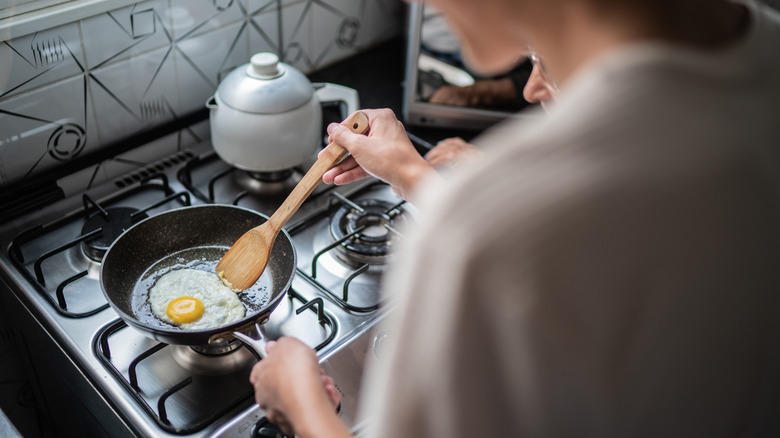Why Fried Eggs Taste Better At Restaurants
Just like in the real estate biz, sometimes, with food, it all comes down to location, location, location. Grandma's home cooking and that old secret ingredient, love, aside, make all things equal, and most people are going to think a restaurant meal tastes better than something they've prepared for themselves. Even something as simple as a fried egg is just going to appear to turn out better in a restaurant setting. And, your personal greatness and occasional mistakes as a casual chef aside, there are a few abstract and concrete reasons why even the humble fried egg will seem, and, in most cases, actually be superior when you leave it to the pros.
Yes, some combination of confirmation bias ("everybody knows that restaurant food is better") and optimism bias ("I bet these are going to be the best eggs I've ever had") is going to give your over easy order more of a sheen at your favorite brunch spot than most scratch-made varieties. But the combination of talent, experience, equipment, and ingredients in the restaurant kitchen are even more critical components of what makes that fried egg in the restaurant so great.
It takes skill, tools, and a little something extra to make a great fried egg
Odds are, you are not a professional chef. The person behind the burners at your diner or fine dining destination has likely prepared more egg dishes than you and everyone you know will ever consume. They could easily achieve the full range of sunny side up to over hard with aplomb, even in their sleep. But, even if you aim to practice for perfection, they'll still have crucial hardware you lack back at home.
Your kitchen is designed for efficiency, comfort, appearance, or, if you're lucky, all three. A restaurant kitchen is designed to prepare food that people will want to pay for. That means that, occasional corner-cutting as a cost of doing business aside, their appliances are the best the business was able to afford, with commercial-grade temperature controls and consistent maintenance. They're also constructed differently. An ideal fried egg will be prepared on a flat top grill; it is likely that your preferred egg place is working with one. Most home stove tops are not equipped with flat tops, relying instead on pots and pans that just can't compete with regard to temperature distribution.
Ingredients are also key. Even if you're using the same eggs, things like the restaurant's black pepper will just naturally be fresher, due to volume. And then, there's butter. When something, especially an egg, is just improbably delicious, the answer is usually butter — more than you'd dream of including at home.

